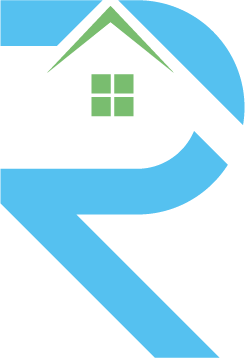Plan Your Finance
Apply NowFinancial Planning
A major financial choice that might affect your future for years is purchasing a property. Regardless of whether you’re a novice or seasoned home buyer, it’s critical to approach the process with a well-thought-out financial strategy. As a mortgage broker, I’ve personally witnessed the value of budgeting while purchasing a property. I will provide insights and guidance on how to use financial planning services to make wise decisions, get the best mortgage, and fulfill your homeownership aspirations in this complete book.
The evaluation of your financial status
Assessing your present financial condition carefully is the first stage in any effective financial strategy for purchasing a home. You should consider the following:

- Income and expenses: To get a complete picture of your financial situation, I will look at your monthly revenue from all sources as well as your monthly expenses. I can determine your ability to make mortgage payments using this technique.
- Debt obligations: I’ll help you list and calculate all of your current debts, including credit card debt, vehicle loans, student loans, and other financial responsibilities. This data is essential for determining how much mortgage debt you can easily manage in addition to your current obligations.
- Savings and investments: To determine the amount of money available for a down payment, closing costs, and other homeownership-related charges, we will analyze your savings, assets, and retirement accounts.
- Credit score: I will guide you through obtaining a copy of your credit report and checking your credit score. Your credit score significantly influences the mortgage terms and interest rates available to you. If necessary, we will work on strategies to improve your creditworthiness.
Setting realistic goals
After evaluating your financial status, it’s time to set attainable goals for becoming a homeowner. Think about the following elements:

- Budget: Based on your evaluation of your financial situation, I will ascertain how much you can easily afford to pay each month for your mortgage. Along with the principal and interest on your loan, your budget should include account for property taxes, homeowners insurance, and possibly mortgage insurance.
- Down payment: We will decide on a realistic down payment amount together. The standard down payment in Canada is 5%, but making a 20% or higher down payment might spare you from paying mortgage default insurance payments.
- Location and property type: Think about the location and property type you want. suburbia versus urban? Apartment or single-family home? Your budget will be impacted by your preferences.
- Timeline: We will discuss your desired timeline for homeownership. Whether you plan to buy within the next few months, a year, or more, we will ensure your savings and financial planning strategies align with your timeline.
Creating a savings plan
Once your objectives have been identified, we will proceed to develop a personalized savings strategy to support you in achieving those goals. We will tackle it as follows:

- Automated savings: We’ll arrange for regular withdrawals from your checking account to fund the chosen down payment savings account. This mechanism makes saving money a habit by ensuring that you continuously add to your down payment fund.
- Reducing expenses: I’ll help you find places in your budget where discretionary spending can be cut or improved. Your down payment savings will get the money released by these adjustments.
- Windfalls: Any unanticipated windfalls, such as tax refunds or bonuses, should be put into your down payment fund. Your savings can grow faster with these additional dollars.
- Side income: Investigate options for supplemental income generation, such as part-time employment, freelancing, or the sale of old items. The additional income may help you save more money.
Knowledge of mortgage alternatives
Understanding the various mortgage options available in Canada is essential when crafting your financial strategy. In this regard, a mortgage broker can provide invaluable assistance. Here’s what you should be aware of:
- Fixed vs. Variable rates: Mortgages in Canada typically fit into one of two categories- fixed-rate or variable-rate. While variable-rate mortgages may offer lower initial rates, they can fluctuate based on market conditions. In contrast, fixed-rate mortgages provide stability with predictable monthly payments.
- Mortgage term: The length of a mortgage might be one to ten years or more. Longer durations provide rate stability but may have higher rates, whereas shorter terms frequently have lower interest rates but need for more frequent renewals.
- Payment options: I’ll walk you through the many prepayment choices that come with mortgage products. Some mortgages allow for greater regular payments or supplementary payments, which speeds up mortgage payoff.
- Mortgage default insurance: In most cases, mortgage default insurance is necessary if your down payment is less than 20% of the purchase price. To help you make an educated choice, we will go over the related expenses and requirements.
Mortgage preapproval
Getting a mortgage pre-approval is an essential step in your financial planning process. In order to do this, you must engage with a lender or mortgage broker to ascertain the largest mortgage amount you are eligible for. This is why it’s crucial:
- Budget clarity: Having a pre-approval clarifies your finances for you, including the highest purchase price you are able to afford.
- Competitive advantage: If you have a pre-approval in hand when you make an offer on a home, sellers are more likely to take you seriously. It proves that you are a capable and serious customer.
- Interest rate hold: On mortgages with pre-approval, certain lenders offer interest rate holds. This implies that you will continue to receive the rate that was initially offered to you even if interest rates increase while you are looking for a home.
Financial contingencies
I will give you advice on the crucial financial contingencies you should include in your offer as you get ready to make one on a house. These contingencies safeguard your rights in the event that there are unforeseen financial difficulties prior to closing. Typical contingencies include:
- Home inspection contingency: This gives you the option to have the house inspected and, if serious problems are discovered, seek repairs or renegotiate the price.
- Financing condition: This condition specifies that the sale is subject to your ability to obtain financing. The agreement may be terminated without penalty if you are unable to obtain a mortgage.
- Appraisal contingency: This clause gives you the option to renegotiate the price or get out of the transaction if the home’s appraised worth is less than the purchase price.
Reviewing and finalizing your financial plan
While your mortgage broker, my dedication goes beyond arranging your mortgage; I’ll be by your side while you pursue homeownership. Your financial plan needs to be regularly reviewed and modified, and I’ll be here to help. Important factors include:
- Interest rate trends: Watch out for changing interest rate trends. If interest rates fall dramatically, you might be able to refinance or renegotiate the conditions of your mortgage.
- Life changes: Significant life changes, like getting married, having a child, or changing jobs, can have an effect on your financial strategy. Make any necessary alterations.
- Emergency funds: Continually save money for emergencies in addition to the down payment. Unexpected costs like house repairs or medical expenses may be covered by this reserve.
- Professional advice: Take into account collaborating with a financial planner or advisor who focuses on real estate and homeownership. They can offer specific advice and tactics.
Closing and beyond
It’s crucial to maintain financial vigilance after your financial strategy has successfully helped you purchase a home. Following the sale, follow these advice for managing your finances:
- Maintaining your budget: Continue to keep to your spending plan to make sure you can afford your mortgage and other homeownership costs.
- Emergency fund: Maintaining an accessible emergency fund will help you pay for unforeseen costs.
- Mortgage renewal: When it comes time to renew your mortgage, be proactive by reading the terms and looking around for low rates.
- Home maintenance: To protect your investment, set aside some of your money for routine home upkeep and repairs.
Financial planning is an essential step in the Canadian house buying process. It equips you with the skills necessary to establish practical objectives, plan your financial future, comprehend mortgage products, and handle the challenges of home buying. I will help you start your road toward homeownership with confidence and reach your long-term financial goals and a carefully thought-out financial plan.
